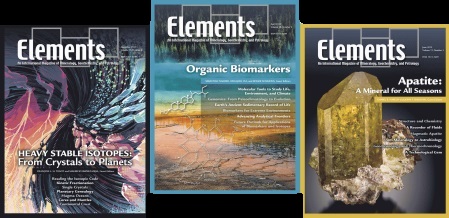Magnetite is a redox-active mineral that can form from both abiotic and biotic processes, and plays an active role in different biogeochemical cycles. Biogenic magnetite particles have properties that differ from their abiogenic counterparts in a variety of ways, including their size, chemical purity, magnetic properties, and association with biomass-derived organic matter. These properties directly influence magnetite reactivity—in particular its sorbent and redox behavior—affecting its association with metals, oxyanions, and other compounds in the environment. Biogenic (and abiogenic) magnetite particles are involved in redox processes by storing electrons, functioning as biogeobatteries, and by transferring electrons between microbial cells or between cells and inorganic constituents. Thus, magnetite influences the fate of contaminants and nutrients in the environment.
This content is for Registered members only. To subscribe, please
join one of our participating societies or contact the Editorial Team.

